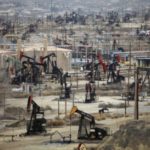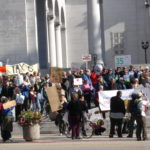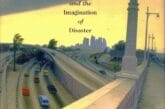
Moreover, if unemployment would dip below 5.5 percent again, AB 32 would again be shelved. Effectively, this proposition would make it impossible to reinstate California’s Global Warming Legislation.
Valero and Tesoro refineries are among the top ten polluters in California. The Koch brothers (pronounced “Coke”), who operate refineries in Alaska, Texas and Minnesota, have sponsored campaigns denying the significance of climate change and renewable energy alternatives. In a study released this spring, the University of Massachusetts at Amherst’s Political Economy Research Institute named Koch Industries one of the top ten air polluters in the United States. Koch-funded groups have also trained and organized “tea party” activists across the country, fighting a host of environmental and social issues under consideration by the Obama Administration. In addition, Greenpeace published a report entitled, “Koch Industries: Secretly Funding the Climate Denial Machine,” showing that Koch contributed far more than even ExxonMobil toward upending efforts to regulate fossil fuels and foster cleaner alternatives.
California’s 2006 Global Warming Legislation, AB 32, requires the Air Resources Board (ARB) to develop regulations and market mechanisms to reduce the state’s greenhouse gas (GHG) emissions such as carbon dioxide to their 1990 levels by 2020, a cut amounting to 15 percent of present levels. Mandatory caps on GHG emissions will begin in 2012 for significant GHG sources and will be reduced over time to meet the 2020 goals. The act requires ARB to measure the greenhouse gas emissions of the industries it determines to be significant GHG sources. The act also gives the governor the ability to suspend the emissions caps and regulations for up to one year in case of an emergency or significant economic harm. The act and the Legislative Counsel’s summary is available at http: //www. leginfo. ca. gov/pub/05-06/bill/asm/ab_0001-0050/ab_32_bill_20060927_chaptered. html.
This law has sparked technological innovations, launching clean energy businesses, creating hundreds of thousands of new California jobs at a time when climate change impacts are being measured with reduced rainfall levels and snowpacks, extended heat waves, and massive brush fires. Air pollution is a major threat to public health, with alarming rates of asthma and lung disease, especially among children. In addition, a study by the University of Massachusetts and the University of Southern California found that the effects of air pollution fall disproportionately on poor and minority communities. A report by the NRDC determined that if emissions in California are not reduced to 1990 levels, over 700 Californians will die prematurely in 2020 alone, along with thousands of cases of asthma and other respiratory illnesses aggravated by pollution.
Moreover, according to California’s nonpartisan State Legislative Analyst’s Office, rolling back AB 32 could “dampen additional investments in clean energy technologies or in so-called ‘green jobs’ by private firms, thereby resulting in less economic activity.”
Two-thirds of California voters support the state’s climate change law; 53% believe the state should act to reduce GHG emissions immediately rather than wait for the economy to improve, according to a July poll by the Public Policy Institute of California. Hopefully the voters in November will reject this bid to push the agenda of climate fouling industries at the expense of the health of people and the land.














Pingback: Sustainable Mobility? California's High-Speed Rail Challenge | WilderUtopia.com